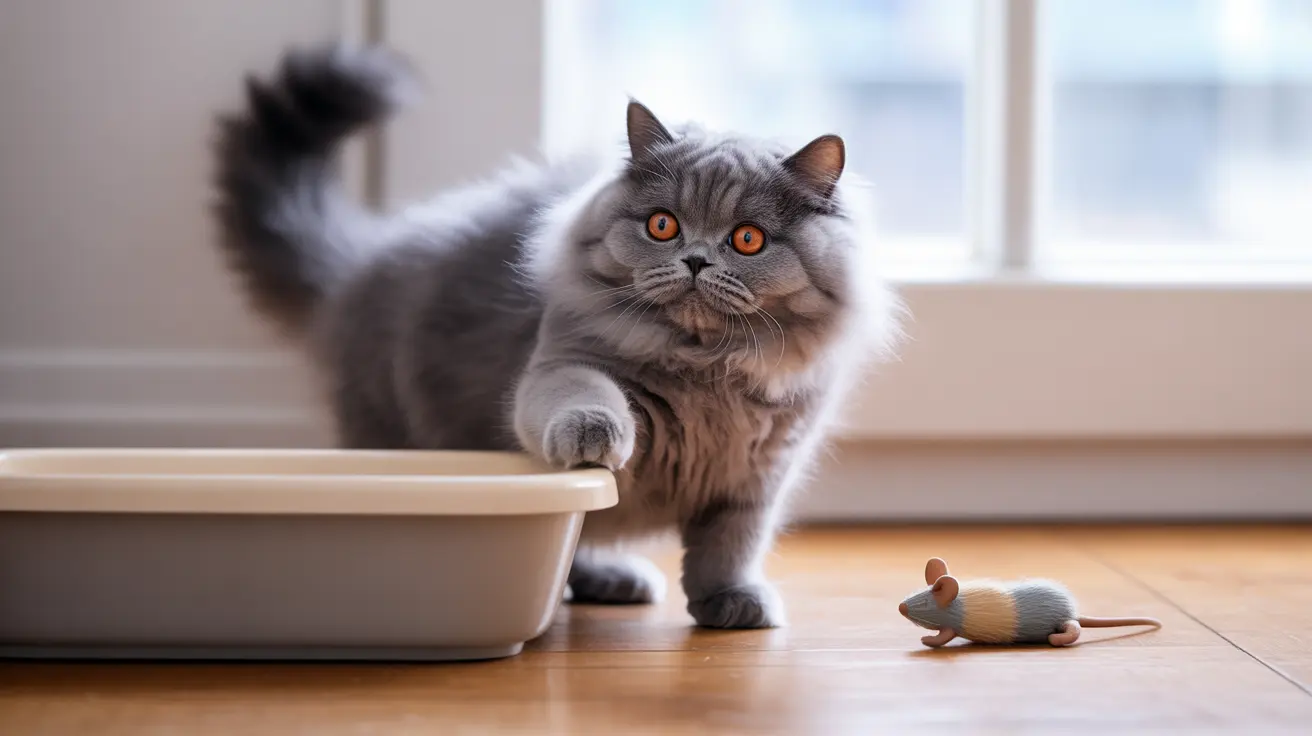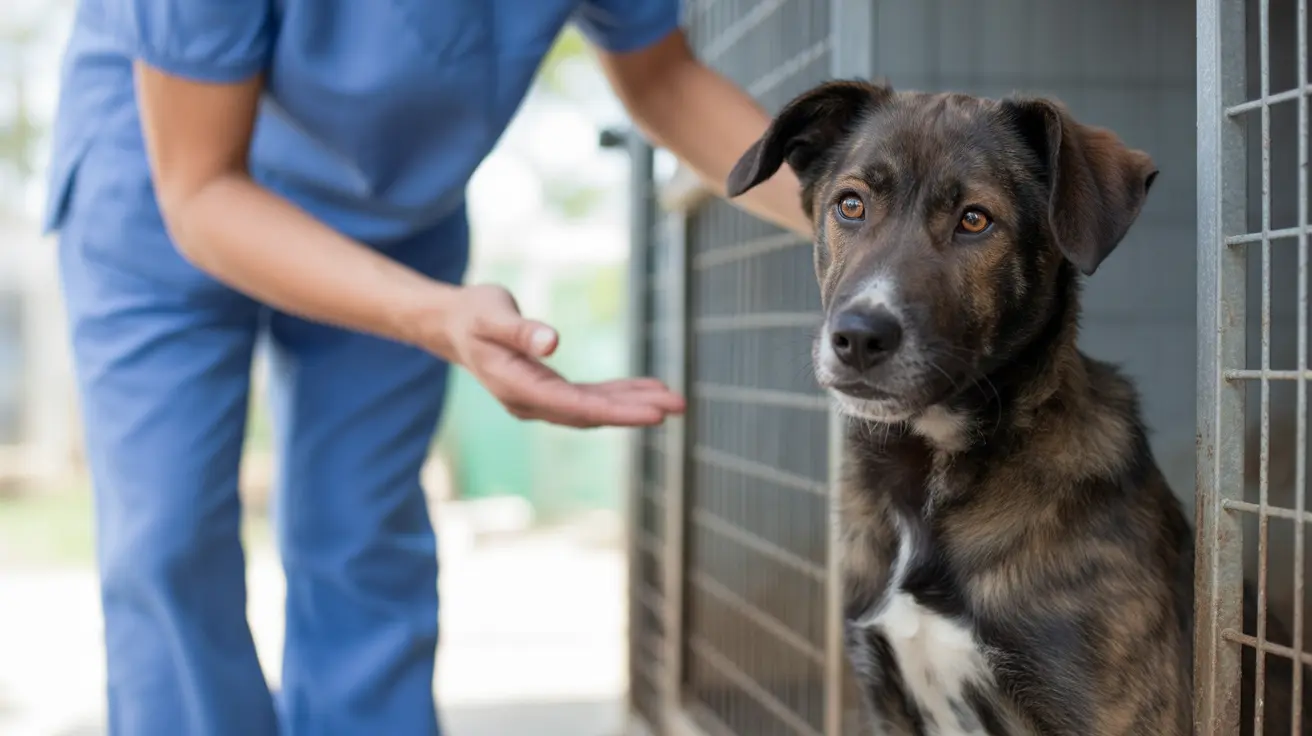If you've noticed your cat pees in the litter box but poops on the floor, you're not alone. This puzzling behavior is more common than many cat owners realize, and it can stem from various causes ranging from medical issues to environmental factors. Understanding why this happens is the first step toward finding an effective solution.
In this comprehensive guide, we'll explore the reasons behind this behavior and provide practical solutions to help your feline friend return to proper litter box habits.
Medical Causes to Consider First
Before assuming behavioral issues, it's crucial to rule out medical conditions that could be causing your cat to avoid the litter box for defecation.
Physical Health Issues
Conditions like constipation, inflammatory bowel disease (IBD), or arthritis can make defecation painful, causing cats to associate the litter box with discomfort. While urination might remain normal, these conditions specifically affect bowel movements, leading cats to seek alternative places to defecate.
Age-Related Problems
Senior cats may develop cognitive dysfunction or mobility issues that make it difficult to maintain proper posture in the litter box during defecation. Since urination requires less positioning time, they might continue using the box for that purpose while choosing easier locations for pooping.
Environmental Factors and Litter Box Setup
Box Location and Accessibility
Cats are particular about their bathroom locations. A litter box placed in a noisy, high-traffic area or one that's difficult to access might deter a cat from using it for longer bathroom visits (like defecation) while still being acceptable for quick urination.
Litter Box Conditions
Many cats are extremely sensitive to litter box cleanliness and may refuse to defecate in a box that's not pristinely clean. Some key considerations include:
- Box size and depth
- Type of litter used
- Frequency of cleaning
- Number of available boxes
- Covered vs. uncovered options
Behavioral and Stress-Related Issues
Cats can develop unusual elimination habits due to stress, anxiety, or past negative experiences. Common triggers include:
Territory and Social Stress
Multiple-cat households might experience issues where one cat feels unsafe using the litter box for extended periods. Defecation makes cats feel particularly vulnerable, so they might seek alternative locations they perceive as safer.
Previous Negative Associations
If a cat has experienced something frightening or uncomfortable while defecating in the box, they might avoid it for that purpose while still feeling comfortable enough to urinate there.
Solutions and Prevention Strategies
Optimize Litter Box Setup
- Provide multiple litter boxes in quiet, accessible locations
- Clean boxes thoroughly and frequently
- Experiment with different litter types and box styles
- Ensure easy access for older or mobility-impaired cats
Address Environmental Factors
- Reduce household stressors
- Create safe, quiet spaces around litter boxes
- Consider using calming aids or pheromone products
- Maintain consistent daily routines
Frequently Asked Questions
Why does my cat pee in the litter box but poop on the floor?
This behavior often results from medical issues, litter box aversion, or stress. Medical conditions affecting defecation, uncomfortable litter box setups, or anxiety can cause cats to seek alternative places for pooping while still using the box for urination.
Can medical issues cause a cat to avoid pooping in the litter box while still peeing there?
Yes, conditions like constipation, arthritis, or inflammatory bowel disease can make defecation painful, causing cats to associate the litter box with discomfort specifically during pooping.
How can I tell if my cat's litter box setup is causing it to poop outside the box?
Watch for signs like hesitation before entering the box, quick exits without pooping, or choosing specific surfaces for defecation. Issues with box size, location, cleanliness, or litter type could be the cause.
What behavioral or environmental factors lead cats to poop outside the litter box but still urinate inside?
Stress, territorial issues in multi-cat households, past negative experiences, or preference for certain surfaces can cause this behavior. Cats might feel too vulnerable to defecate in the box but comfortable enough for quick urination.
What steps can I take to encourage my cat to poop in the litter box again?
Start with a veterinary check-up, then ensure clean, accessible litter boxes in quiet locations. Try different litter types, reduce environmental stress, and consider using positive reinforcement to encourage proper litter box use.
Remember, patience and consistency are key when addressing litter box issues. If problems persist despite trying these solutions, consult with your veterinarian or a certified feline behaviorist for personalized guidance.






